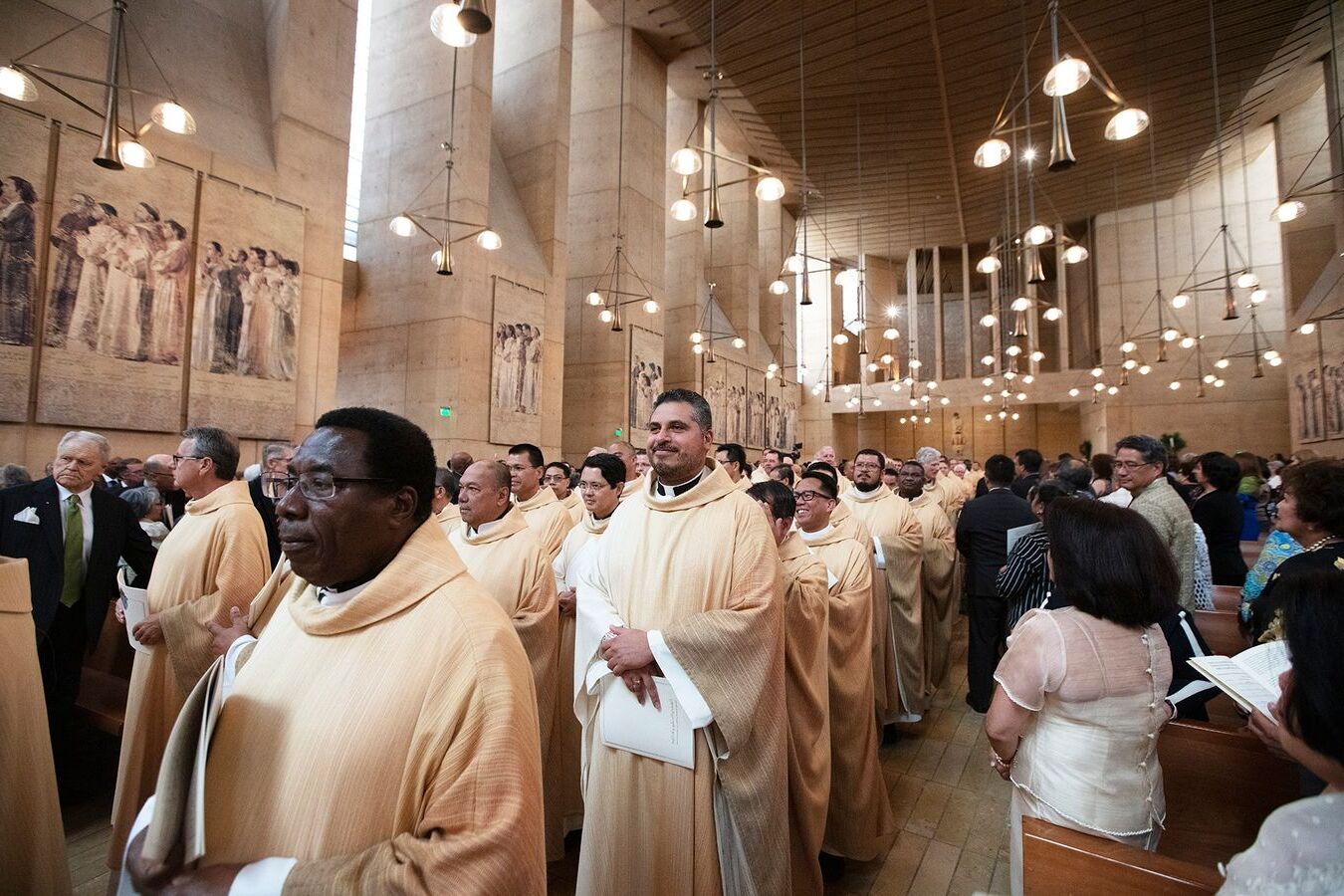
Ordination is a significant milestone in many religious traditions, marking the official induction of individuals into clerical roles. But what exactly does this process entail? Ordination involves a series of rituals and ceremonies that vary across different faiths, but the core purpose remains the same: to confer authority and responsibility upon the ordained. Whether it's a priest, minister, rabbi, or monk, the journey to ordination often requires years of study, spiritual growth, and community service. Curious about the specifics? From ancient traditions to modern practices, here are 25 intriguing facts that shed light on the multifaceted world of ordination.
What is Ordination?
Ordination is a significant rite in many religious traditions. It marks the official recognition of a person's role as a clergy member. Let's dive into some fascinating facts about ordination.
-
Ancient Roots: Ordination ceremonies date back thousands of years. Ancient civilizations, including the Egyptians and Greeks, had rituals to appoint religious leaders.
-
Different Traditions: Various religions have unique ordination practices. For example, in Buddhism, monks are ordained through a ceremony called "Upasampad?."
-
Christian Ordination: In Christianity, ordination typically involves the laying on of hands. This symbolizes the transfer of spiritual authority.
-
Jewish Ordination: Jewish ordination, known as "Semikhah," has been practiced since the time of Moses. It involves a rabbi conferring authority on a student.
-
Islamic Ordination: Islam does not have a formal ordination process. Instead, religious leaders, or imams, are recognized for their knowledge and piety.
The Process of Ordination
The ordination process varies widely across different faiths. Here are some intriguing details about how ordination is conducted.
-
Training and Education: Many traditions require extensive training. For instance, Catholic priests undergo years of theological education.
-
Vows and Promises: Ordination often includes taking vows. These can range from vows of celibacy to promises of service and obedience.
-
Ceremonial Garb: Special clothing is often worn during ordination. In the Catholic Church, new priests wear a chasuble and stole.
-
Community Involvement: Ordination ceremonies frequently involve the community. Congregants may participate in prayers and blessings.
-
Symbolic Acts: Various symbolic acts are part of the ceremony. For example, anointing with oil is common in many Christian denominations.
Roles and Responsibilities
Ordination bestows specific roles and responsibilities upon individuals. These roles can vary significantly between different religious traditions.
-
Spiritual Leadership: Ordained individuals often serve as spiritual leaders. They guide their communities in faith and practice.
-
Sacramental Duties: In Christianity, ordained clergy perform sacraments like baptism and communion.
-
Teaching and Preaching: Many ordained leaders are responsible for teaching and preaching. They interpret religious texts and offer guidance.
-
Pastoral Care: Providing pastoral care is a key responsibility. This includes counseling, visiting the sick, and offering support.
-
Administrative Roles: Some ordained individuals take on administrative roles. They may oversee church operations or manage religious institutions.
Challenges and Controversies
Ordination is not without its challenges and controversies. Here are some notable issues related to ordination.
-
Gender Restrictions: Many religious traditions restrict ordination based on gender. For example, the Catholic Church only ordains men as priests.
-
Celibacy Requirements: Celibacy is a requirement in some traditions. This has been a point of contention, particularly in the Catholic Church.
-
Cultural Differences: Cultural differences can impact ordination practices. What is acceptable in one culture may not be in another.
-
Modern Adaptations: Some traditions are adapting their ordination practices. For instance, some Protestant denominations now ordain women and LGBTQ+ individuals.
-
Ethical Concerns: Ethical concerns can arise, such as the abuse of power by ordained leaders. This has led to calls for greater accountability.
Fun and Lesser-Known Facts
Ordination has some fun and lesser-known aspects. Here are a few to pique your interest.
-
Animal Ordination: In some cultures, animals have been ordained. For example, a cat named "Father John Misty" was ordained in a spoof ceremony.
-
Online Ordination: Online ordination is now possible. Organizations like the Universal Life Church offer ordination through their websites.
-
Celebrity Ordination: Some celebrities are ordained. For instance, actor Dwayne "The Rock" Johnson is an ordained minister.
-
Historical Figures: Many historical figures were ordained. Martin Luther, the Protestant Reformer, was an ordained Catholic priest before his break with the Church.
-
Unique Titles: Different traditions have unique titles for ordained individuals. In Hinduism, an ordained priest is called a "Pujari."
Ordination is a rich and varied practice with deep historical roots and modern adaptations. Each tradition brings its own unique flavor to this important rite.
Final Thoughts on Ordination
Ordination is a fascinating topic with deep historical roots and significant cultural impact. From ancient rituals to modern ceremonies, the process of becoming ordained has evolved but still holds immense importance. Whether you're interested in the religious, legal, or social aspects, understanding ordination offers valuable insights into various traditions and practices.
Knowing these 25 facts can help you appreciate the diversity and complexity of ordination across different faiths and cultures. It's not just about the ceremony; it's about the commitment, responsibilities, and the journey that follows. Whether you're considering ordination yourself or just curious, these facts provide a solid foundation.
Thanks for joining us on this exploration. Keep learning, stay curious, and who knows? Maybe one day, you'll find yourself on the path to ordination.
Was this page helpful?
Our commitment to delivering trustworthy and engaging content is at the heart of what we do. Each fact on our site is contributed by real users like you, bringing a wealth of diverse insights and information. To ensure the highest standards of accuracy and reliability, our dedicated editors meticulously review each submission. This process guarantees that the facts we share are not only fascinating but also credible. Trust in our commitment to quality and authenticity as you explore and learn with us.


